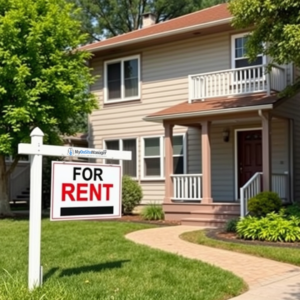
Finding an affordable rental home is a growing challenge for many residents in New Providence, Bahamas. According to a recent research study conducted by Abigail Knowles and Randy Hield, the high cost of rental housing is particularly burdensome for lower-income households, many of whom are forced to spend a disproportionately large percentage of their income on rent.
The study highlights that some households exceed the generally recommended affordability ratio of 30% of income spent on housing. This has led to an increase in informal housing arrangements and substandard living conditions, raising concerns about long-term sustainability and the overall quality of life for many Bahamians.
The Core Issues in the Rental Market
The Bahamian government’s housing policies have primarily focused on homeownership, with initiatives such as subsidized mortgages and rent-to-own schemes. While these programs benefit middle-income households, they often fail to provide adequate solutions for lower-income renters.
Currently, the rental market in New Providence is fragmented and largely unregulated. Many landlords operate outside of formal frameworks, listing their properties through informal channels like Facebook groups and word of mouth. This lack of structure makes it difficult for policymakers to collect accurate data, regulate rental prices, and ensure quality standards.
To address this crisis, the study outlines a set of policy recommendations aimed at increasing the availability of affordable rental housing while ensuring long-term market sustainability.
Proposed Solutions for Rental Housing Affordability
The study suggests several strategic interventions that can help mitigate the rental housing crisis and create a more equitable market for tenants and landlords alike.
1. Implementing Inclusionary Zoning (IZ) Policies
One of the key recommendations is the adoption of inclusionary zoning (IZ) policies. This approach would require real estate developers to allocate a portion of their new housing developments to affordable rental units.
To encourage compliance, the government could offer developers density bonuses—allowing them to build more units than typically permitted—and fast-tracked permitting processes to reduce bureaucratic delays. These incentives would make it financially viable for developers to contribute to affordable housing without increasing their overall costs.
Such policies have been successfully implemented in cities worldwide, helping to integrate affordable housing within mixed-income communities rather than concentrating low-income renters in isolated areas.
2. Establishing Limited-Profit Housing Associations
Another recommendation involves limited-profit housing associations, modeled after Austria’s successful rental system. These associations would be responsible for constructing and managing cost-capped rental housing while operating under a regulated framework to ensure long-term affordability.
Government support would be essential in this initiative and could include:
- Providing discounted land for affordable housing developments.
- Offering low-interest public loans to fund construction.
- Providing tax incentives to developers willing to participate in the program.
By leveraging private sector investment while maintaining strong regulatory oversight, this model could introduce sustainable, non-profit-driven housing options into the market.
3. Increasing Supply-Side Subsidies
Many governments around the world have found that supply-side subsidies—incentives that directly support the construction of new housing—are more effective than demand-side measures like housing vouchers.
In the context of New Providence, where housing supply is already constrained, supply-side subsidies could help reduce costs and expand the availability of rental units. However, to be effective, these subsidies must be carefully managed to prevent market distortions, such as inflated rental prices or an over-concentration of low-income housing in certain areas.
A well-executed subsidy program would not only lower rents but also encourage developers to build more rental units that cater to a broader income range.
4. Strengthening Tenant Protections and Rental Regulations
Another crucial aspect of improving the rental market is implementing stronger tenant protections and clearer rental regulations. Currently, the informal nature of many rental agreements makes it difficult for tenants to seek legal recourse in cases of unfair treatment, rent hikes, or substandard housing conditions.
Possible reforms include:
- Establishing a rental registry to track housing availability and pricing trends.
- Setting standardized lease agreements to protect tenants from arbitrary evictions and exploitative rental increases.
- Introducing rent control measures in high-demand areas to prevent excessive price inflation.
By formalizing and regulating the rental market, policymakers can create a fairer system that benefits both renters and landlords.
The Path Forward
New Providence’s rental housing crisis is not unique, but the solutions must be tailored to the island’s specific economic and social landscape.
In the short term, mandatory inclusionary zoning policies could quickly increase the supply of affordable rental units. Additionally, stronger rental regulations could help stabilize the market and protect tenants from exploitative practices.
In the long term, a shift towards limited-profit housing associations and supply-side subsidies could create a more sustainable rental market that serves a wider range of income levels. By learning from successful models like Austria’s, New Providence can develop a rental housing framework that balances affordability with market stability.
Ultimately, addressing this housing crisis requires coordinated action from the government, private developers, and civil society. By implementing these evidence-based policy solutions, New Providence can create a future where affordable, high-quality rental housing is accessible to all.
Source: Finding affordable rented houses is a challenge. A research study suggests how that can be tackled
